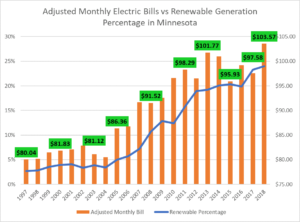The utility sector refers to a class of firms that give basic amenities, like water, waste material services, electricity, dams, and fossil fuel. though utilities earn profits, square measure|they’re} a part of the general public service landscape and are so heavily regulated. Investors usually treat utilities as long holdings and use them to inject steady financial gain in their portfolios. Visit energyoutlet.com to take a look at the energy outlets in your locality.
Utilities Sector Explained

Utilities usually provide investors stable and consistent dividends, in addition to less value volatility relative to the general equity markets. due to these facts, utilities tend to perform well throughout economic condition climates. Contrarily, utility stocks tend to fall out of favor with the market, throughout times of the economic process.
The many sorts of utilities obtainable embody massive firms that supply multiple services like electricity and fossil fuel. alternative utility interests may specialize in only one form of service, like water. Some utilities deem clean and renewable energy sources like wind turbines and star panels, to provide electricity. Investors may additionally purchase regional utilities or invest in exchange-traded funds (ETFs) containing baskets of utility stocks placed throughout the U.S.
Paradigm Shift
While electrical utility firms accustomed be regionally noncompetitive, loosely, the business is breaking down into the subsequent four provider segments:
- Generators: These operators produce power.
- Energy Network Operators: Grid operators, regional network operators, and distribution network operators sell access to their networks to retail service suppliers.
- Energy Traders and Marketers: By shopping for and mercantilism energy futures and alternative derivatives and making complicated “structured merchandise,” these firms usefully facilitate utilities and power-hungry businesses secure a dependable provision of electricity at a stable, predictable value.
- Energy Service suppliers and Retailers: In most U.S. states, shoppers will currently opt for their own retail service suppliers.
KEY TAKEAWAYS
- The utility sector could be a class of company stocks that give basic services together with electricity, fossil fuel, and water.
- Utilities earn a profit however area unit a public service and, as a result, have substantial regulation.
- Typically, investors obtain utilities as long holdings for his or her dividend financial gain and stability
- The utility sector tends to try and do well as a defensive play against economic science downturns.
- As the economy improves and interest rates rise, investors will realize higher-yielding alternatives to utilities.
How Investors Trade Utilities
Because utility stocks pay reliable dividends, investors typically favor them over lower-dividend paying equities. when the monetary crisis of 2008, the central bank cut interest rates, in an attempt to stimulate the economy. As a result, investors flocked to utilities, as safer investments. merely put utility firms area unit a viable defensive alternative for investors throughout economic science downturns.
However, because the economy improves and interest rates rise, investors will realize higher-yielding alternatives than utilities. As rates rise, therefore do the yields of U.S. Treasury bills. as an example, if a utility pays a dividend yield of three, however increasing interest rates spike bond yields to four-dimensional, the utility company would be got to increase its dividend payout so as to match the rising yields of Treasuries. Therefore, utilities move once interest rates decrease as a result of their dividends area unit larger than Treasury yields. However, because the economy improves, utilities tend to dump as interest rates rise back to traditional levels and their dividends become another time below Treasuries.
Pros and Cons of the Utilities Sector
Utility area unit stable investments that give an everyday dividend to shareholders, creating them a well-liked long buy-and-hold choice.

